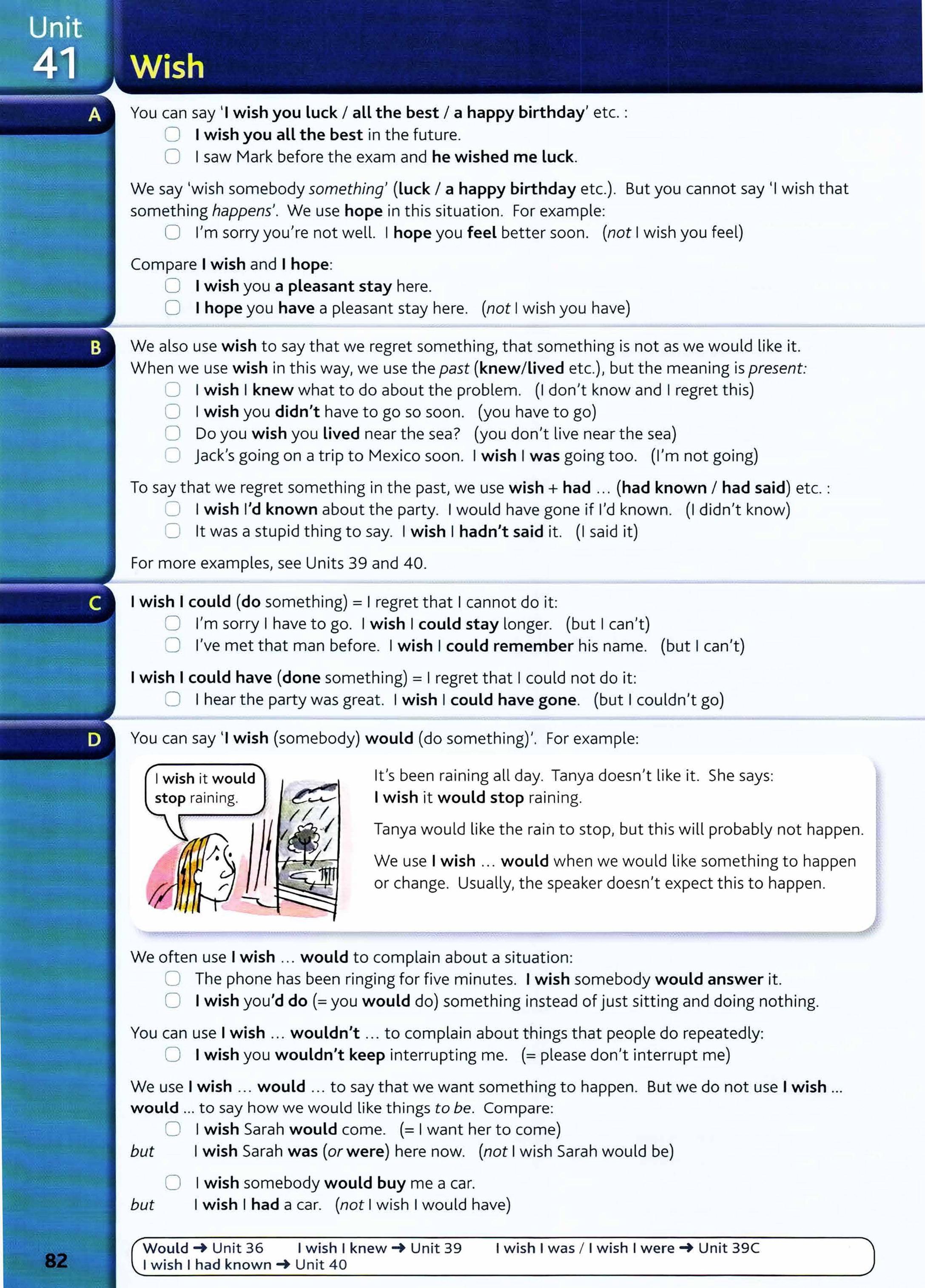As others have mentioned, "would" is an expression of a hypothetical desire and "wish" is usually for an unlikely or impossible desire.
However, "would" is used to express a wish in the future tense too. In this case, you say you wish something would happen because it hasn't happened yet, but it continues to be possible.
This is what's shown in your screenshot example and it's called the "Subjunctive Mood" in English.
University of Washington has some good Subjunctive Mood examples that demonstrate when to use "I wish ___ would ___" in your sentence structure.
When the main clause expresses a wish, you use the past tense of the verb to express the subjunctive mood:
I wish I knew how to proceed. Not: I wish I know how to proceed.
That's natural enough, but when you have a wish sentence in which the verb is a compound constructed with a form of to be, you always use 'were' to communicate a present-tense wish.
I wish I were going. Not: I wish I was going.
If you want to express a past-tense wish, use the past perfect form:
I wish she had invited me. Not: I wish she invited me.
I wish they had hired you. Not: I wish they hired you.
If you want to express a future-tense wish, use would instead of will.
I wish he would arrive on time. Not: I wish he will arrive on time.

